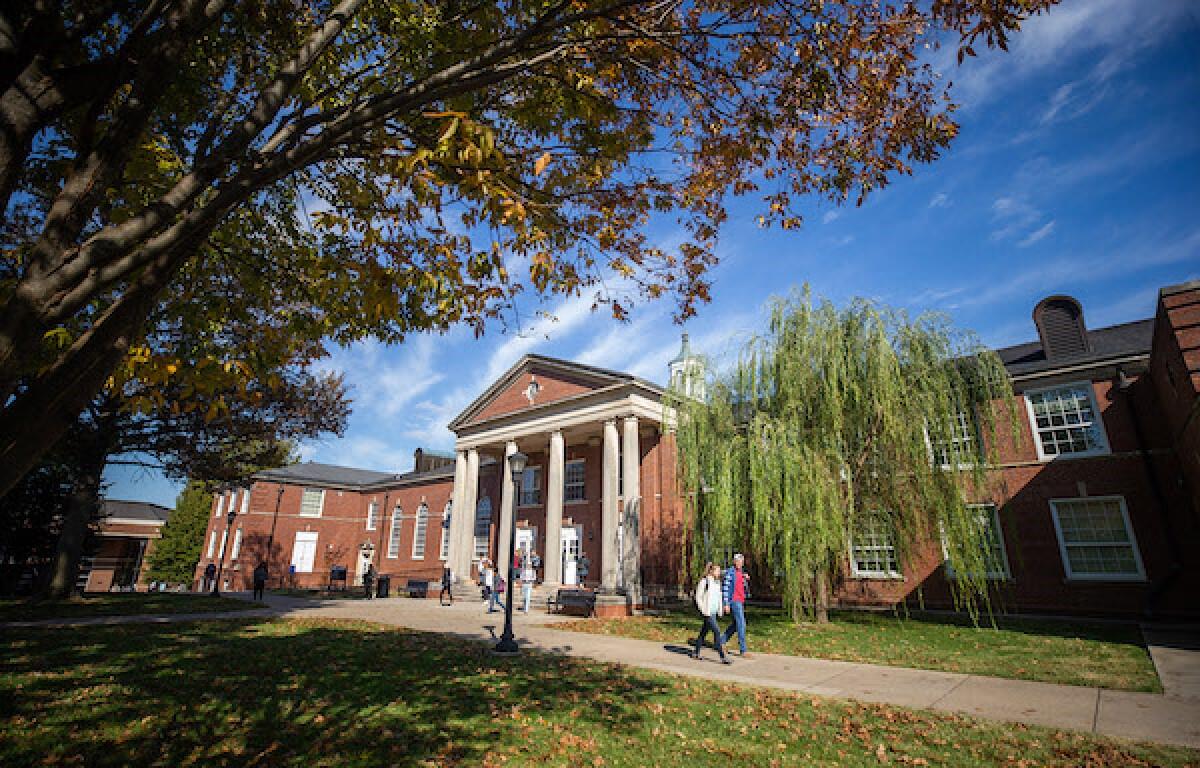CLARKSVILLE, TN (CLARKSVILLE NOW) – Tyler Tims is a graduate assistant at Austin Peay State University pursuing a doctorate in psychology. He’s also a single father and disabled veteran who relies on the campus food bank to have enough food to eat, and on several payday loans to afford the cost of living while he finishes his degree.
Tims is one of dozens of APSU graduate students who are seeking higher stipends to afford living expenses while continuing their education with a petition, “APSU: Increase Graduate Worker Stipends & Support!” that has collected dozens of signatures.
What GAs do, and what they make
Graduate teaching assistants (GTAs) help faculty with their teaching responsibilities. Academic and non-academic departments usually have different expectations for graduate assistant duties and responsibilities, but typically GTAs help with grading the work of undergraduate students and with teaching classes.
According to Bill Persinger, APSU spokesman, the baseline stipend for a GA (graduate assistant) is $2,600 per semester with a 10-credit-hour full scholarship covering tuition and fees. In some cases, graduate assistants are awarded scholarships in addition to their assistantships. If eligible and accepted, a 10-hour graduate tuition scholarship (per semester) for an in-state student would be $5,377.50 and $8,147.50 for out-of-state students.
“In total, an in-state student taking 10 hours of graduate courses in the fall, spring and summer terms could earn up to $23,932.25 per year in scholarships and stipends. An out-of-state student could earn up to $32,242.50 per year in scholarships and stipends,” Persinger said.
Summer assistantships are not often offered by the APSU College of Graduate Studies. Depending on the need for work and the availability of funding, individual hiring departments may make special arrangements for a small number of them.
Assuming they have tuition and fees covered, GAs at APSU have $5,200 a year in stipends for living expenses.
Due to the schedule demands of full-time classes and assistantship duties, most grad students cannot work outside of the university, so they rely on that $5,200 stipend for rent, groceries, transportation and all other expenses.
A comparison by Clarksville Now shows that the $5,200 stipend is far less than what’s paid by several other state universities.
What other schools pay GTAs
For comparison to other Tennessee colleges, Middle Tennesse State University offers a $14,500 a year stipend for assistantships for students enrolled in non-science doctoral level programs and a $7,000 a year stipend for students enrolled in non-science master’s level programs.
At East Tennesse State University, master’s degree students awarded a graduate assistantship have their full tuition covered and receive a stipend of $7,000 for the school year. In addition to scholarships, ETSU’s doctoral GA stipend salary is $25,000 specific to the Biomedical Science Graduate Program.
In 2021, the UT Knoxville graduate school invested $1 million in recurring funds to raise the minimum graduate assistantship stipend levels 20%. According to the UT Office of Budget and Finance, a GTA working a minimum of 10 hours a week, nine months out of the year, would earn a minimum $7,200 stipend a year. Those who work year-round could earn $9,000 a year.

There’s a national movement to improve stipends for GAs at all universities, backed by the United Campus Workers, and it is gradually gaining traction. According to their website, UCW states, “We are united in a wall-to-wall union: the staff, faculty, graduate and undergraduate workers that make our colleges and universities work.”
Pushing for change
Several APSU graduate students are pushing to raise the stipend from $5,200 a year to the federal poverty level for a single adult: $13,590.
“Unfortunately, we are often unable to make ends meet with the rapidly rising cost of living in the Middle Tennessee area. Many graduate students report having to access food pantries to ensure they receive adequate nutrition,” the petition states.
The petition calls to action to redesign the current tiered pay system to recognize the increased workload and added value of doctoral students along with the implementation of a free meal plan of at least five meals a week for all graduate workers. “This would decrease the reliance on the university food pantry and other food assistance options in the community.”
Tims said that stipends have barely increased at all in recent years, but the cost of living has increased a lot. “It’s difficult to live without additional support and loans. Now that APSU has doctoral programs, we are here for longer and feel these effects over a longer period.”
GAs teach entry-level classes and bring in funding, but that’s not reflected it in their stipends, Tims said.
According to Tims, faculty are struggling to recruit and retain graduate students into the programs, and with these low stipends, grad students are leaving because they can’t make ends meet.
“I like APSU,” Tims said. “I’m fighting for this because I want APSU and its programs to be successful.”
The university is taking action to try to address the problem.
“Increasing graduate stipends is something the university has been focused on in recent months,” said Chad Brooks, dean of the College of Graduate Studies. “We recently submitted a budget proposal for increased graduate assistance (GA) stipends for the 2024 fiscal year. I believe our dedication to supporting graduate assistantships is clear.
“Since 2016, we have increased the number of GA stipends from 90 to 250, more than doubling our investment in graduate assistantships from $1.3 million to $2.8 million.”


